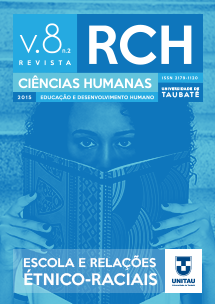AS IMPLICAÇÕES DA BUROCRACIA NA SOCIEDADE E SEUS REBATIMENTOS NO SERVIÇO SOCIAL
Keywords:
Burocracia., Trabalho Profissional, Capitalismo.Abstract
Este artigo discute sobre a questão da burocracia no contexto da sociedade capitalista e suas implicações para o desenvolvimento do trabalho do assistente social. Para sua realização, utilizou-se a pesquisa bibliográfica, tendo em vista o aprofundamento da temática abordada. Com base nos estudos realizados constatou-se que embora a burocracia seja um sistema de controle racionalmente organizado, útil para o atendimento dos objetivos organizacionais e para o seu funcionamento satisfatório, deixa margens para falhas, donde advêm problemáticas. A rigidez burocrática costuma minar sua eficiência, pois sua estrutura pesada dificulta o enfrentamento de situações imprevisíveis e novas, além de inibir a criatividade dos profissionais. Na sistemática divisão do trabalho o funcionário especializado torna-se uma engrenagem da dinâmica organizacional. Essa característica da burocracia revela-se necessária para maximizar a produtividade, mantendo o trabalhador prisioneiro de suas funções e tolhido ao emaranhado de papéis, cumprindo determinações de forma pragmática e mecanizada. O trabalho do assistente social não está isento do aparato formal e burocrático, elemento necessário para que se realize conforme os padrões exigidos. Tal lógica afeta sobremaneira a sua intervenção, visto que tende a priorizar as requisições institucionais em detrimento das demandas dos usuários que recorrem ao Serviço Social na perspectiva de acessar os seus direitos, além de induzir a práticas profissionais rotineiras e mecanicistas. Considera-se que para atender às prerrogativas éticas do Serviço Social, é imprescindível que o profissional se aproprie de estratégias que ampliem o seu campo interventivo e contribuam para desburocratizar a sua relação com os usuários.
Metrics
Downloads
Published
How to Cite
Issue
Section
License
The publications of the Human Sciences Journal are registered under the Creative Commons Attribution CC-BY license.
1. The contents of the manuscripts are the exclusive responsibility of their author.
2. It is allowed the total or partial reproduction of manuscripts published in the journal, provided that the source is cited.
3. When submitting their manuscript to the Journal, the authors certify that they are of their own authorship and unpublished (not published in any digital or printed media).
4. The copyright of the articles published in the Journal are of the author, with first publication rights reserved for this journal.
5. For disclosure purposes, the Journal may replicate the works published in this journal in other media, such as social networks (Facebook, Academia.Edu, etc.).
6. The Journal is of public access, therefore, the authors who submit manuscripts agree that they are of free use.
7. In case of any illegality, fraud, or other attitude that puts in doubt the honesty of the publication, especially the practice of plagiarism, the manuscript will be automatically rejected.
8. If the manuscript has already been published, it will be immediately removed from the base of the Journal, its citation linked to the Journal will be prohibited and the cancellation of the referred publication shall be reported in the next issue of the one in which the article was published. In case of the procedure for the withdrawal of the paper the authors will be informed beforehand, being guaranteed the right to a broad defense.
9. The personal data provided by the authors will be used exclusively for the services provided by this publication and will not be made available for other purposes or to third parties.





